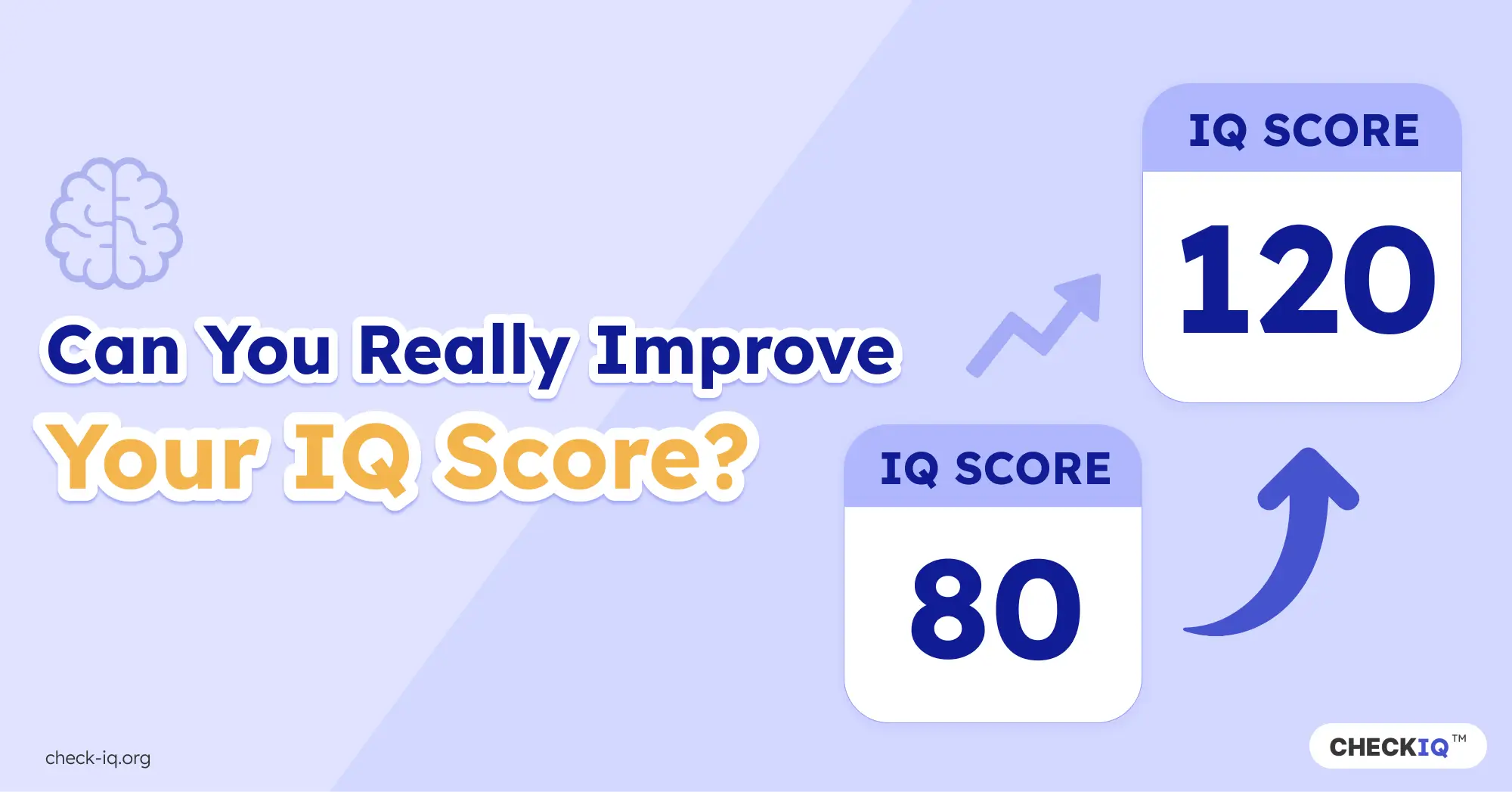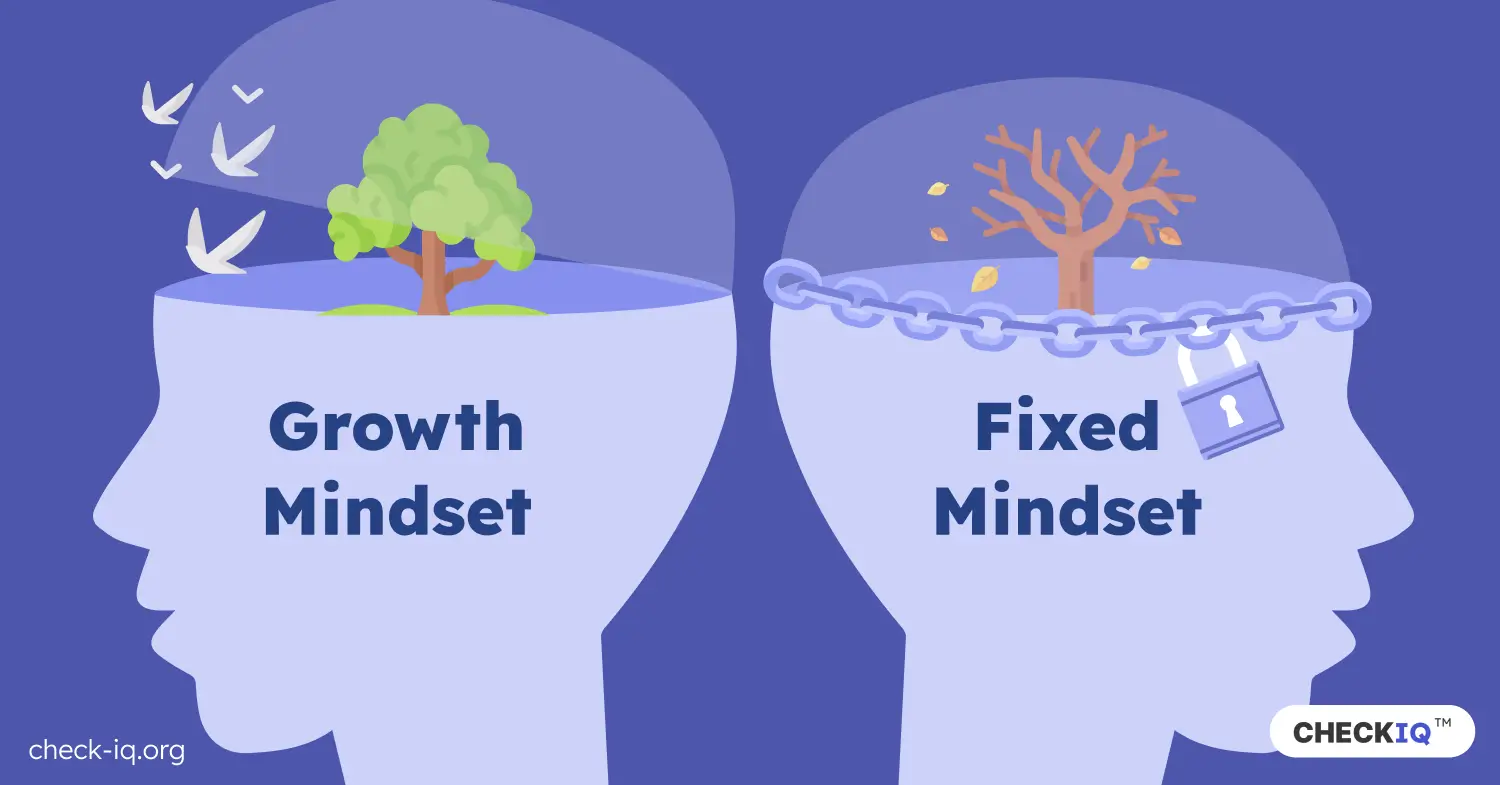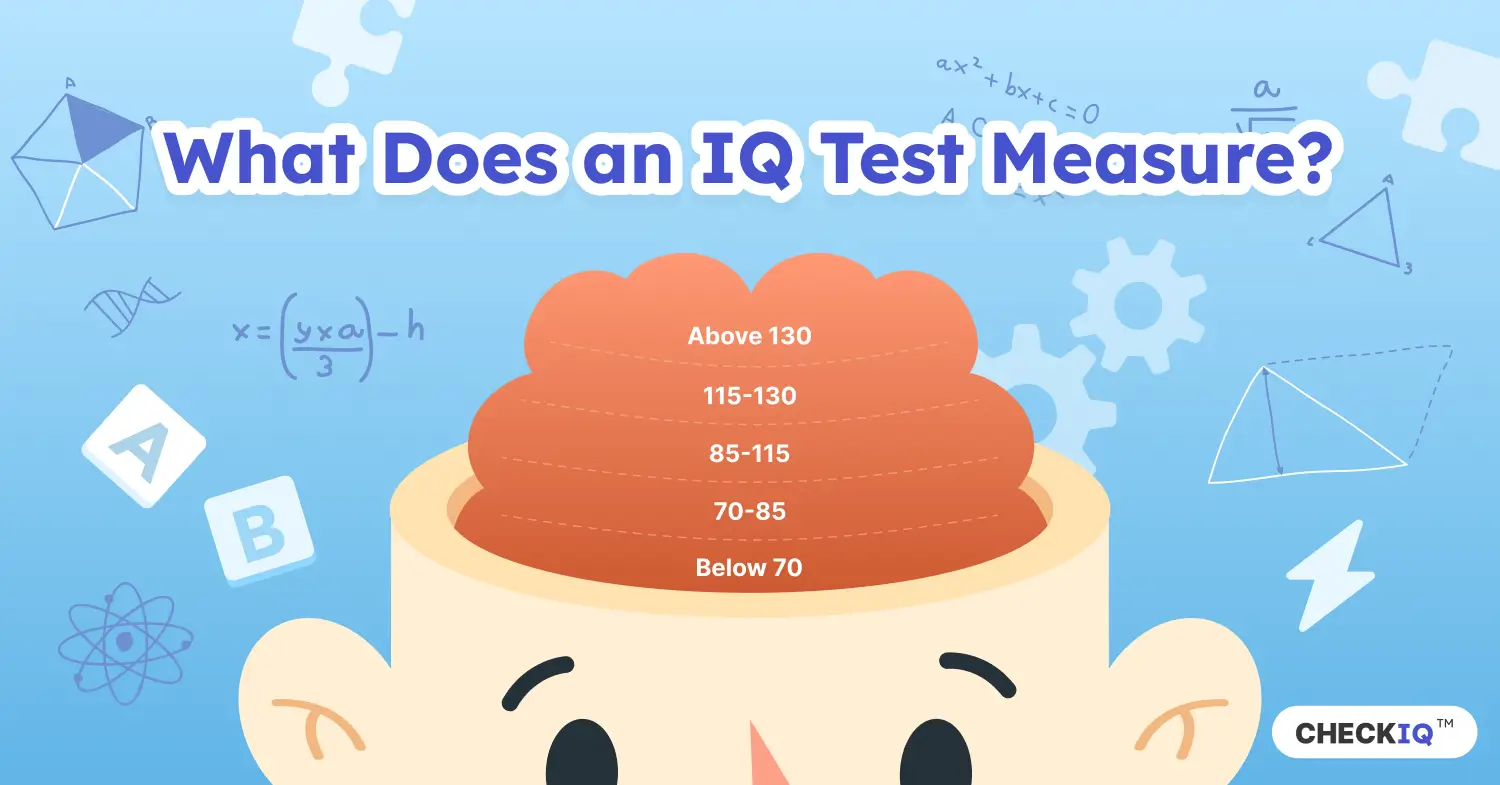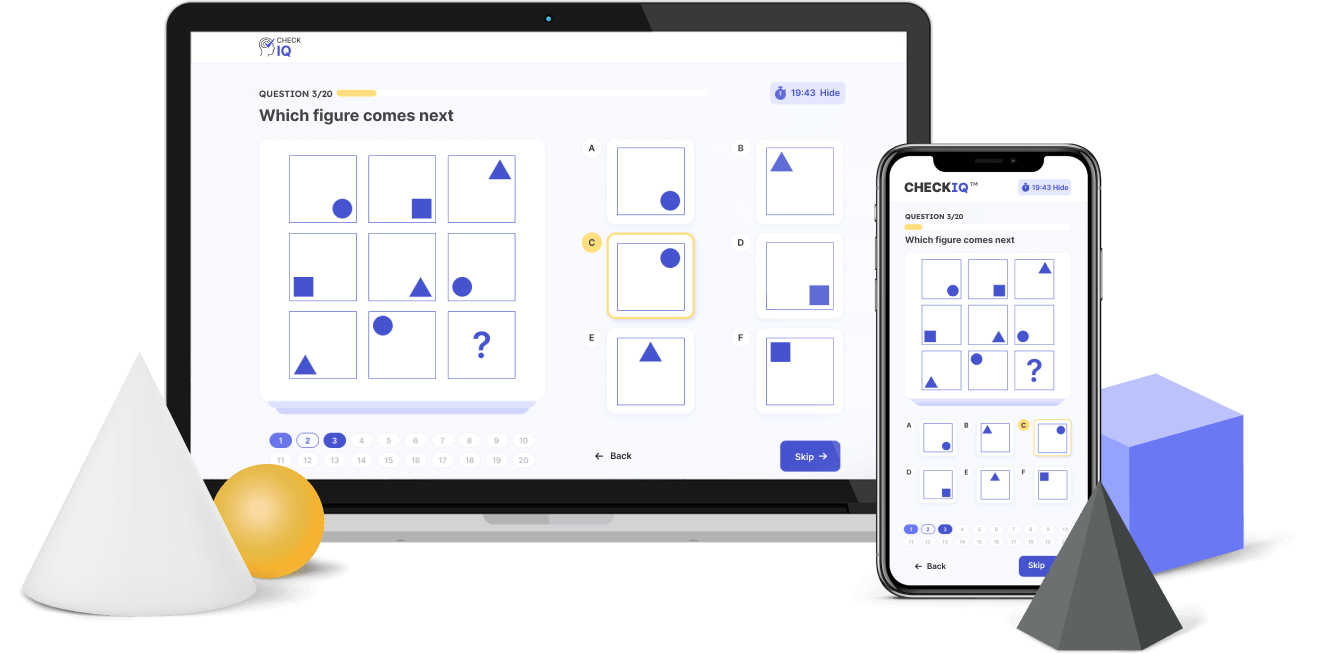Most people aim to achieve the highest IQ test score possible. Their goal is set, whether it's to understand their strengths and weaknesses in various cognitive areas or simply to get an ego boost.
So, you might wonder if you actually can improve your IQ score with practice? This is what we are going to examine today.
Overview of IQ and IQ Tests
What is IQ?
IQ, short for intelligence quotient, measures a person’s mental ability compared to their peers. It was popularized in the 1900s by French psychologist Alfred Binet. Originally, IQ tests were created to help identify children who needed extra help in school. Over time, these tests started being used for other purposes, such as deciding school placements and screening job applicants.
How does an IQ test work?
IQ tests measure your intellectual and cognitive abilities. These abilities include information processing, problem-solving, adapting to new environments, and learning new concepts. They challenge the brain with questions that require quick and accurate responses. While IQ scores show your strengths and areas for growth, they are not an all-encompassing measure of intelligence.

Does your IQ level determine intelligence?
Your IQ level measures skills such as your reasoning ability, spatial visualization, quantitative abilities, memory, and verbal abilities. While these are important markers of intelligence, they are not the only ones. These skills require different types of intelligence such as fluid intelligence, which is the ability to solve novel problems, think abstractly, and reason logically independent of prior knowledge, and crystallized intelligence, which is the ability to use learned knowledge, skills, and experience to solve problems.
IQ tests do not measure creativity, emotional intelligence, or critical thinking. This is highly important, because those skills can also significantly influence your achievements in life. In addition, biological, social, and environmental factors have also been proven to affect IQ test scores and life outcomes.
A reliable 100% adaptive online IQ Test. Get your IQ score immediately.
Start My IQ Test
Is it possible to increase your IQ score?
Yes, you can improve your IQ score, at least to some degree. We know that a large part of intelligence is inherited and many people believe intelligence is fixed and cannot be changed. However, this is only partly true. Your IQ may change over time. Your natural abilities play a big role in this and research shows you can also study for an IQ test to some extent.
10 of The Best Ways to Improve IQ
Let’s see which activities and habits can improve your IQ test performance.
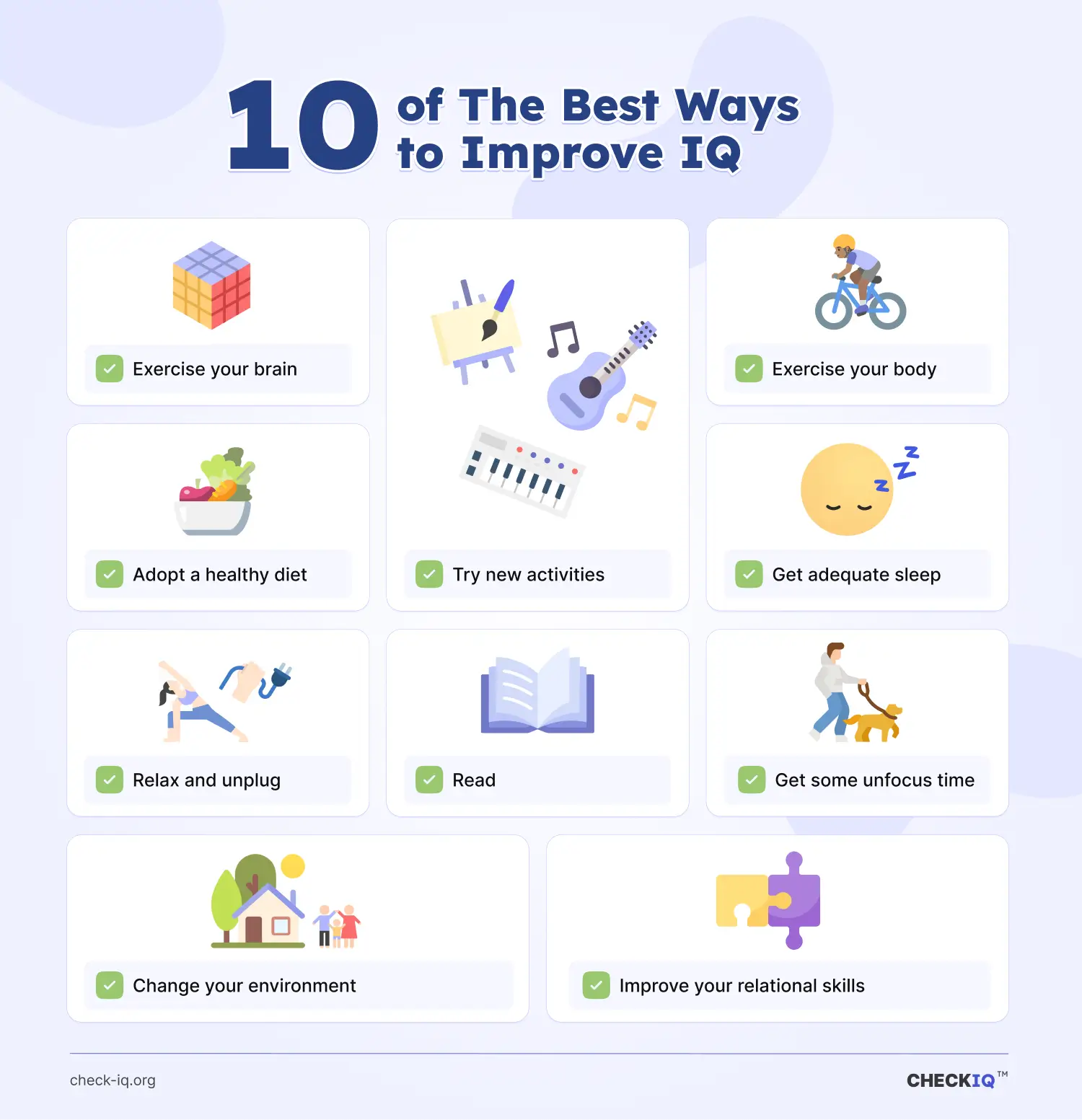
1. Exercise your brain
Give your brain a workout worthy of a mental marathon! Creative problem-solving training showed
You can challenge your brain with activities like puzzles, chess, sudoku, brain games, and learning new skills. These exercises keep your brain active most of the time. They are so helpful in improving memory and processing speed, eventually, helping you approach problems more effectively. While engaging in these activities, try to keep a growth mindset, which is key to improve your IQ. Basically, believe that you can improve through effort and learning.
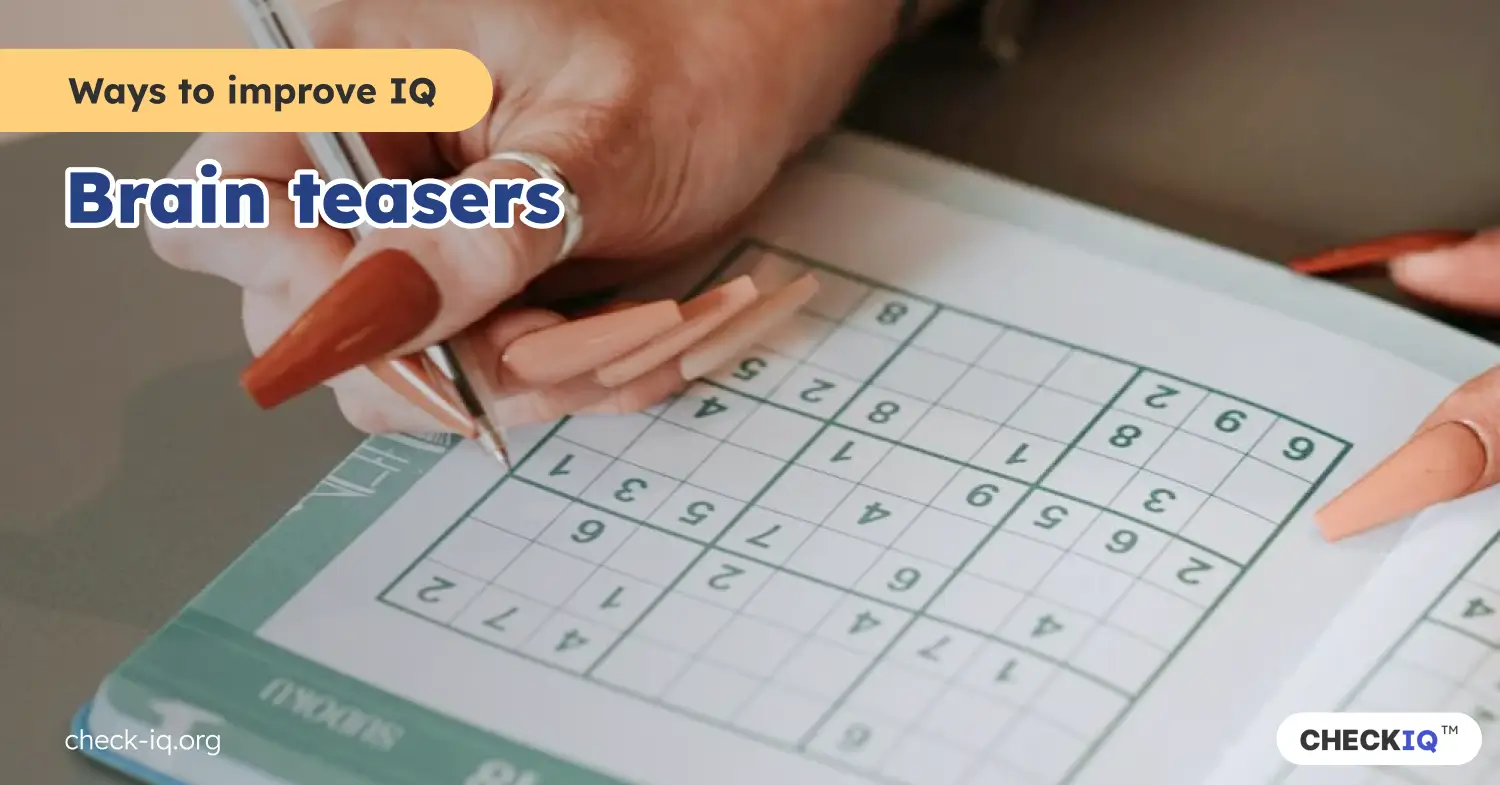
Supporting this, a study by the University of Sidney found that practicing creative problem-solving can significantly boost IQ. In the experiment, one group of people did special brain training for three years. This group saw their IQ scores increase by an average of 10 points compared to a group that didn't do the training.
2. Try new activities
Engaging in new and challenging activities can train your brain. Learning to paint, play an instrument, or swim encourages the brain to form new connections, making it stronger and more adaptable.
According to Harvard Health, these activities help keep your brain sharp and improve cognitive skills.
In addition, a study published in the journal Nature found that engaging in activities that challenge your brain, such as learning a new language or musical instrument, can increase the density of grey matter in the brain, which is associated with improved cognitive function.
3. Exercise your body
Engage in regular aerobic exercise to enhance brain function, leading to better performance in tasks requiring attention and quick information processing. A University of British Columbia study found that regular aerobic exercise boosts the size of the hippocampus, the brain area involved in verbal memory and learning.

Physical exercise is great for your brain. Dr. McGinnis from Harvard Medical School points out that moderate exercises, like walking or tai chi, can improve memory and thinking skills. You might wonder how this is possible, but this happens because exercise helps the brain by growing new blood vessels and brain cells. This is why you have to aim for moderate exercise for about 150 minutes each week.
If you can’t do that, additionally, a study published in 2018 found that even a single session of moderate-intensity exercise can enhance cognitive functions like attention and working memory, which are directly related with your intelligence.
4. Adopt a healthy diet
Research has shown that omega-3 fatty acids, found in fish and some plants, can improve learning, memory, and overall brain function. So, try to select foods rich in omega-3 fatty acids, antioxidants, and vitamins, such as fish, berries, nuts, and leafy greens. These nutrients boost cognitive performance and support brain health.

Further evidence of the impact of diet on cognitive development comes from a study that examined the dietary patterns of children at ages 3 and 8.5. This study found that a diet high in processed foods at age 3 was associated with a lower IQ score at age 8.5, while a 'health-conscious' diet rich in fruits, vegetables, and fish at age 8.5 was associated with a higher IQ score.
5. Get adequate sleep
You need to get enough sleep to improve cognitive performance. The reason behind this is that sleep enhances memory, concentration, and problem-solving abilities.

Research shows that sleep patterns and certain sleep-related brain activities, like sleep spindles, are linked to intelligence. This is why getting quality sleep can help improve your cognitive abilities and overall brain function. Thus, make sure you get a good night's rest, especially before a test, to maximize your cognitive functions.
6. Relax and unplug
Lowering stress levels improves your cognitive performance and increases your ability to concentrate and solve problems effectively. This was highlighted by research which shows that meditation and yoga can slow age-related cognitive decline and improve brain function.

Stress-reduction techniques can also enhance creativity and promote mental clarity. These are highly essential for problem-solving and decision-making. Practitioners of these activities have been found to have more resilient and efficient brain networks, which helps maintain fluid intelligence as they age.
7. Change your environment
While intelligence is partly inherited, your environment also matters a lot. Several studies found that urban living, regular physical activity, higher family income, and parents' education and occupation positively affect your IQ.
For example, a study in India confirmed that children living in cities, engaging in physical activities for more than 5 hours a week, and having parents with higher education and professional jobs tend to have higher IQs. Researchers found that their optimal environment helped them reach their full genetic potential.
Similarly, a 2021 study, which is yet to be peer-reviewed, examined the cognitive development of children born during the COVID-19 pandemic in Rhode Island, USA. The study found that these children had an average IQ score of 78, significantly lower than the average of 100 observed in children of the same demographic born before the pandemic. These children were born full-term and did not have any developmental disabilities. The lead researcher suggested that this drop in IQ might be due to reduced social interaction and limited environmental stimulation caused by pandemic-related restrictions.
8. Read
Reading has been shown to increase vocabulary, enhance comprehension skills, and improve overall language proficiency, which are essential for effective communication and learning. Highlighting this, the Great British Intelligence Test showed that frequent readers tend to have better verbal intelligence and cognitive abilities that improve with age, peaking in their 70s and 80s.

Additionally, research on twins has shown that better reading ability can lead to higher scores on general intelligence tests, influencing both verbal and nonverbal IQ. The study found that twins with better reading skills excelled in reading over time and demonstrated significant improvements in overall intelligence.
9. Get some unfocus time
Sometimes, giving your brain a break is just as important as working hard. Balancing focused tasks with relaxing activities can actually boost your brain power. The 'unfocus' network, or default mode network (DMN), is essential for creativity and problem-solving, as explained by Srini Pillay from Harvard Medical School.
Activities like daydreaming or going for a walk let your mind wander and can improve creativity and memory. So, try to mix focused tasks with relaxing activities to train your brain for better overall performance.
10. Improve your relational skills
Relational skills involve making connections between different concepts or items. For instance, pairing similar items in matching games helps you recognize connections, which is a fundamental relational skill. This is rooted in the Relational Frame Theory (RFT), a psychological theory that focuses on how humans learn and understand relationships between different concepts. It emphasizes the importance of making connections between things, which can enhance cognitive abilities.
Improving relational skills has been shown to improve IQ, verbal abilities, and math skills. A study found that teaching children to identify relationships such as "same," "opposite," "more," and "less" led to a significant increase in IQ scores.
To give you a better idea of what this looks like in real life, here are some day-to-day activities that leverage relational skills:
- Matching games: Pair similar items to practice recognizing connections.
- Spot the differences: Find differences between two pictures to sharpen observation skills.
- Sorting objects: Categorize items by type or size.
- Comparing prices: Find the best deals while shopping by comparing prices.
- Organizing belongings: Arrange your items systematically by type or size.
You might already do some of these activities without realizing it!
Frequently Asked Questions
Does your IQ change during teenage years?
Yes, it does. Research published in Nature shows that teenagers' IQs can both improve and decline significantly between the ages of 14 and 18. This study found that 39% of teenagers experienced changes in verbal IQ, and 21% saw changes in performance IQ. These changes are linked to variations in brain structure, suggesting that intellectual capacity is still developing during these years. Neuroplasticity is for real!
Can your IQ increase after 18?
Yes, it can. While indeed, the critical window for IQ development is during childhood, cognitive abilities can still improve with continued education and mental exercises even after the age of 18. For example, engaging in activities that challenge your brain, such as learning new skills, reading, playing chess, and solving puzzles, can help maintain and even increase your IQ. Studies show that lifelong learning and mental stimulation play a crucial role in cognitive health and intelligence.
What is the Flynn Effect?
The Flynn Effect refers to the observed rise in average IQ scores over the 20th century. This happened in both fluid and crystallized intelligence test scores. It is attributed to improvements in nutrition, education, and overall living conditions. However, recent studies suggest a possible reverse Flynn Effect, where IQ scores may be declining in some populations. This decline in IQ is thought to be due to factors such as poor nutrition, reduced cognitive engagement, and mostly related to environmental factors.
What are the different IQ tests to use?
There are several standardized IQ tests commonly used to measure cognitive abilities:
- Wechsler Intelligence Scale for Children (WISC-V): This test is designed for children aged 6 to 16 and assesses various cognitive skills, including verbal comprehension, visual-spatial processing, and working memory.
- Wechsler Intelligence Scale for Adults (WAIS-IV): This test is used for individuals aged 16 and older and evaluates cognitive abilities such as perceptual reasoning, processing speed, and verbal comprehension.
- Stanford-Binet Intelligence Scales, Fifth Edition (SB5): Suitable for individuals aged 2 to 85, this test measures five factors of cognitive ability: fluid reasoning, knowledge, quantitative reasoning, visual-spatial processing, and working memory.
- Woodcock-Johnson Tests of Cognitive Abilities (WJ IV): This test battery is suitable for individuals aged 2 to 90+ and provides a comprehensive assessment of cognitive abilities, including general intellectual ability, specific cognitive skills (e.g., reading, math), and oral language.
These tests are some of the most common types of IQ tests. They are usually administered by licensed psychologists and provide a comprehensive assessment of an individual's intellectual strengths and areas for development.

